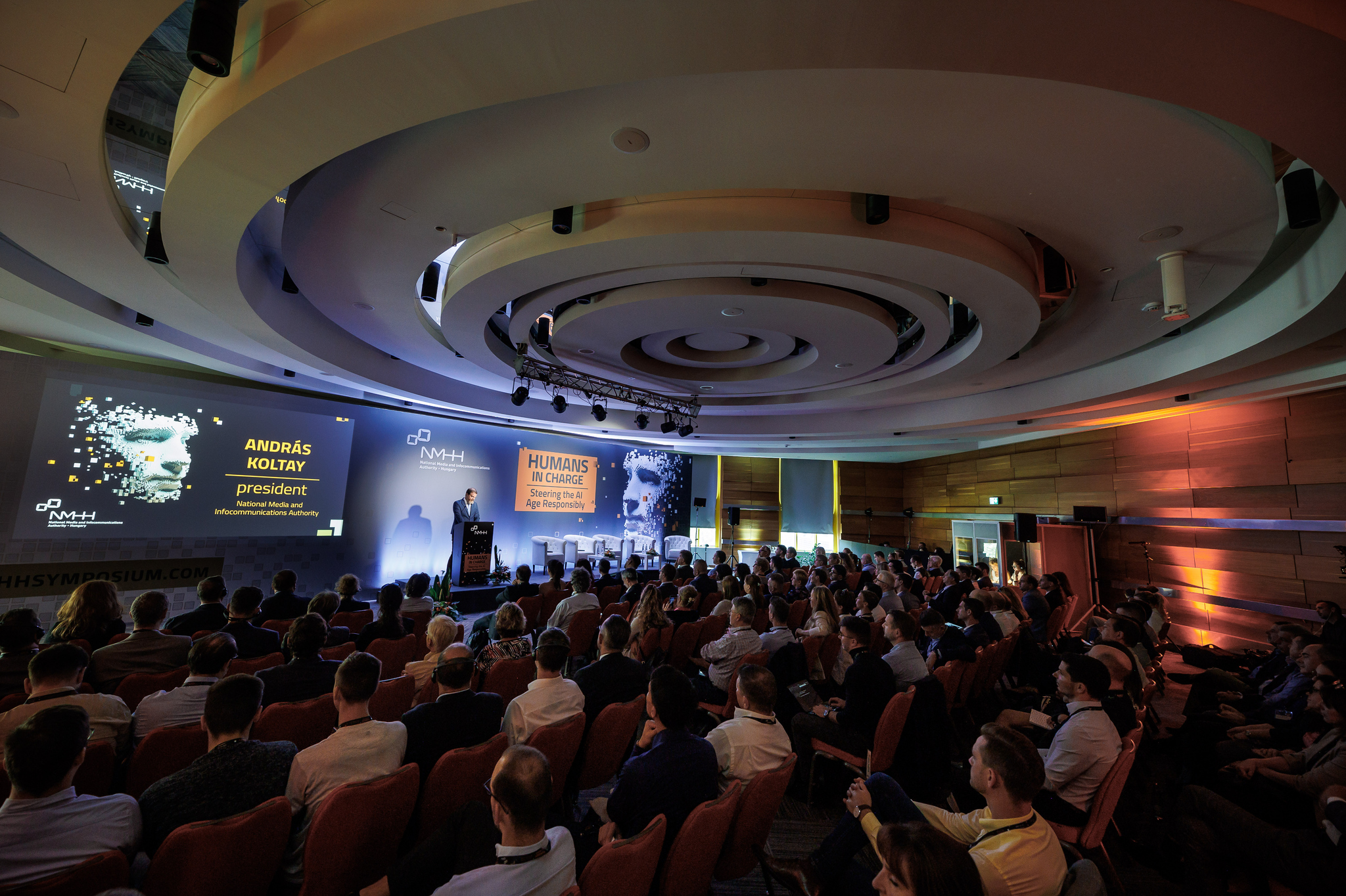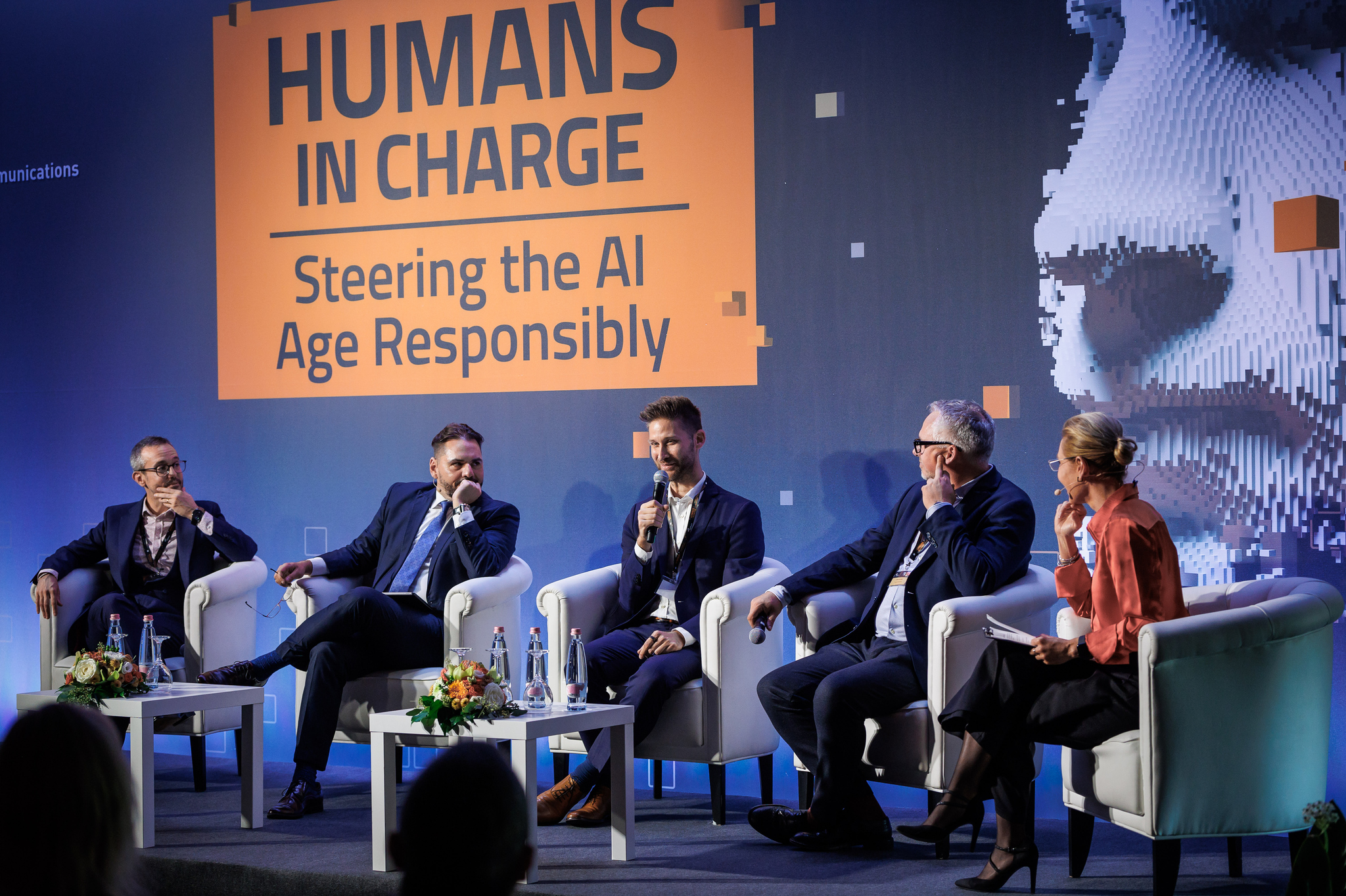More than a new technology: AI is creating a new paradigm
On 2 October, the National Media and Infocommunications Authority (NMHH) hosted a conference on the regulation of artificial intelligence. The speakers at the event included András Koltay, President of the NMHH and Dr. György Tilesch, innovation and AI expert.

The international conference titled "People First - Responsible Governance in the Age of Artificial Intelligence” deals with the regulatory issues of AI-based systems and services and highlights its impact in terms of society and media awareness.
The forthcoming introduction of the EU's Artificial Intelligence Act is the pioneer of a regulatory wave that will set safeguards and supervisory requirements, noted Dr. András Koltay in his speech: "This summer, the European Parliament adopted its position on the AI law. At its core is the expectation that AI systems used in the EU should be safe, transparent, traceable and environmentally friendly." The President of the NMHH also pointed out that artificial intelligence is not just a technology, but a new paradigm-shifting tool. Intelligent systems and algorithms have the potential to address social, economic and scientific challenges that currently seem insurmountable. Yet, all these will fundamentally transform the way our society functions. That is why it is important for regulators, scientists, industry representatives and citizens to understand its importance and implications.
Algorithms can help us achieve new levels of personalised reality. Nevertheless, there is a flipside to this: deepfake technologies are continuously eroding trust in digital reality. It is increasingly difficult to tell the difference between the real and the virtual. At the same time, the way the media market works seems to be changing. That is why it is important for researchers, developers and decision-makers to work together to develop technology and to use it responsibly and ethically," concluded the President.
Adrian Gonzalez Sanches, a Microsoft executive from Spain, said in his presentation that he believes that using AI will save a great deal of money and the new technology will be beneficial for society, yet we mustn’t be naive and certain precautions are necessary. He stressed that AI must operate transparently and in line with social objectives, and for this sake, the market and the public sector must work together.
According to Imre Bárd, a researcher working on the educational applications of artificial intelligence, AI may not be the right answer to every problem and it is crucial to adopt an ethical approach during product development, while preventing abuses in its practical application.

One of the hosts of the event, Dr. György Tilesch, an internationally renowned technology researcher, highlighted in his summary speech that regulation is inevitably lagging behind technological developments, yet we no longer have to “reinvent the wheel": there are many international best practices to choose from. The Budapest conference is also of particular significance as Hungary will be holding the rotating presidency of the EU in 2024, the same year in which the AI Act is due to be finalised.